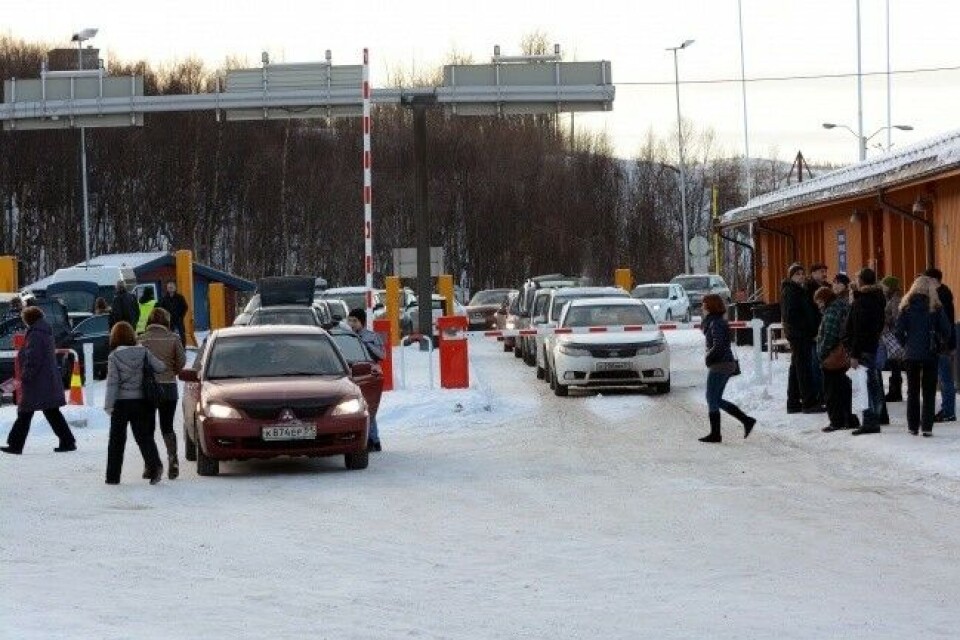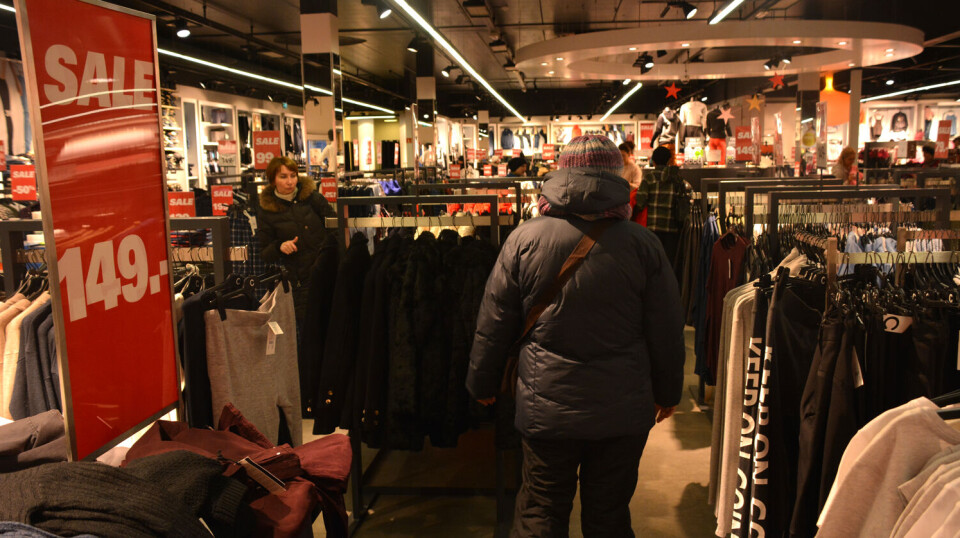
Russians still love taking a ride to neighboring Kirkenes
After two years of decline, traffic across the Norwegian-Russian border is again on the increase.
p.p1 {margin: 0.0px 0.0px 0.0px 0.0px; font: 11.0px Helvetica; color: #000000; -webkit-text-stroke: #000000}p.p2 {margin: 0.0px 0.0px 0.0px 0.0px; font: 11.0px Helvetica; color: #000000; -webkit-text-stroke: #000000; min-height: 13.0px}span.s1 {font-kerning: none}
The growth is moderate, indeed. However, the sharp decline in cross-border traveling between Norway and Russia experienced over the last couple of years has clearly come to an end. The trend now points upwards.
Figures from Norwegian police show that a total of 21,181 people crossed the border in December 2016. That is almost 300 more than in the same period in 2015. The trend has been the same for the past five months. Since August last year, the number of cross-border travelers has increased on a year-to-year comparison.
About 75 percent of the travelers are Russians.

Several businesses in Kirkenes, the Norwegian border town, say they feel a change. Yngve Hansen-Stangnes, leader of local shop Fretex, says more Russian customers now are finding their way to his downtown store.
«We have noticed it over the last few months, there are more Russians in the shop and we have more tax-free declaration forms to handle», Hansen-Stangnes says to the Barents Observer.
He believes the trend could be linked with the slight strengthening of the ruble. He also believes that the brand new highway across the border could play a role.

Also Dressmann, a clothing shop, says Russian shoppers are coming in abundance. About 60 percent of our customers are Russian, says shop leader Oda Huru. Some of them are coming several times per week, she say. The shop has three Russian-speaking employees to serve the Russians.
Among the Russian shoppers are Valentina from the neighboring town of Zapolyarny. She mostly comes to Kirkenes to buy clothes and foodstuff. «It is better quality stuff over here, and for us in Zapolyarny, it is shorter to go to Kirkenes than to Murmansk», she explains.
It is not as cheap as it used to be, though. The Russian ruble, despite the recent strengthening, is far weaker than it was two years ago. «Back then, I went to Kirkenes several times per month», Valentina says. «Now, I only go approximately once a month».

Also Svetlana and Andrey regularly go to Kirkenes for shopping. This time, they brought their daughter Aleksandra. They come from Murmansk and go to Kirkenes about once a month. «It is a great Christmas atmosphere here, and lots of nice presents to buy», Svetlana says. «And the cheese and milk products are really nice».
The town of Kirkenes has for years greatly benefitted from the cross-border trade and shopping with nearby Russia. In the period between 2005 and 2014, the number of Russian visitors more than tripled, and new shops popped up around town to meet the growing Russian demand.

Then things changed in 2014 following sanctions, counter-sanctions and the major weakening of the ruble. Between 2014 and 2015, border traffic shrunk by more than 23 percent.
Local police representative Stein Kristian Hansen agrees that the decline appears to have been overcome and that a renewed increase in cross-border traveling could be expected. «This Christmas, there have been pretty many border-crossings», he says to the Barents Observer. However, he does not foresee any major growth. «It is all quite unpredictable, but I would say that the number of border-crossings will stabilize around 250,000 per year», he says.
In 2016, a total of 235,469 people crossed the Norwegian-Russian border. Of them, almost 57,000 were Norwegians. After the introduction of a so-called Local Border Traffic regime, a visa-free arrangement, locals from Kirkenes and neighboring Russian towns have been able to easily cross the border. In 2016, as much as 65 percent of the Norwegian travelers used their visa-free permits, and not a visa, when visiting Russia.
More than half of the population in Kirkenes have obtained the visa-free permits, the local Russian General Consulate says.
















